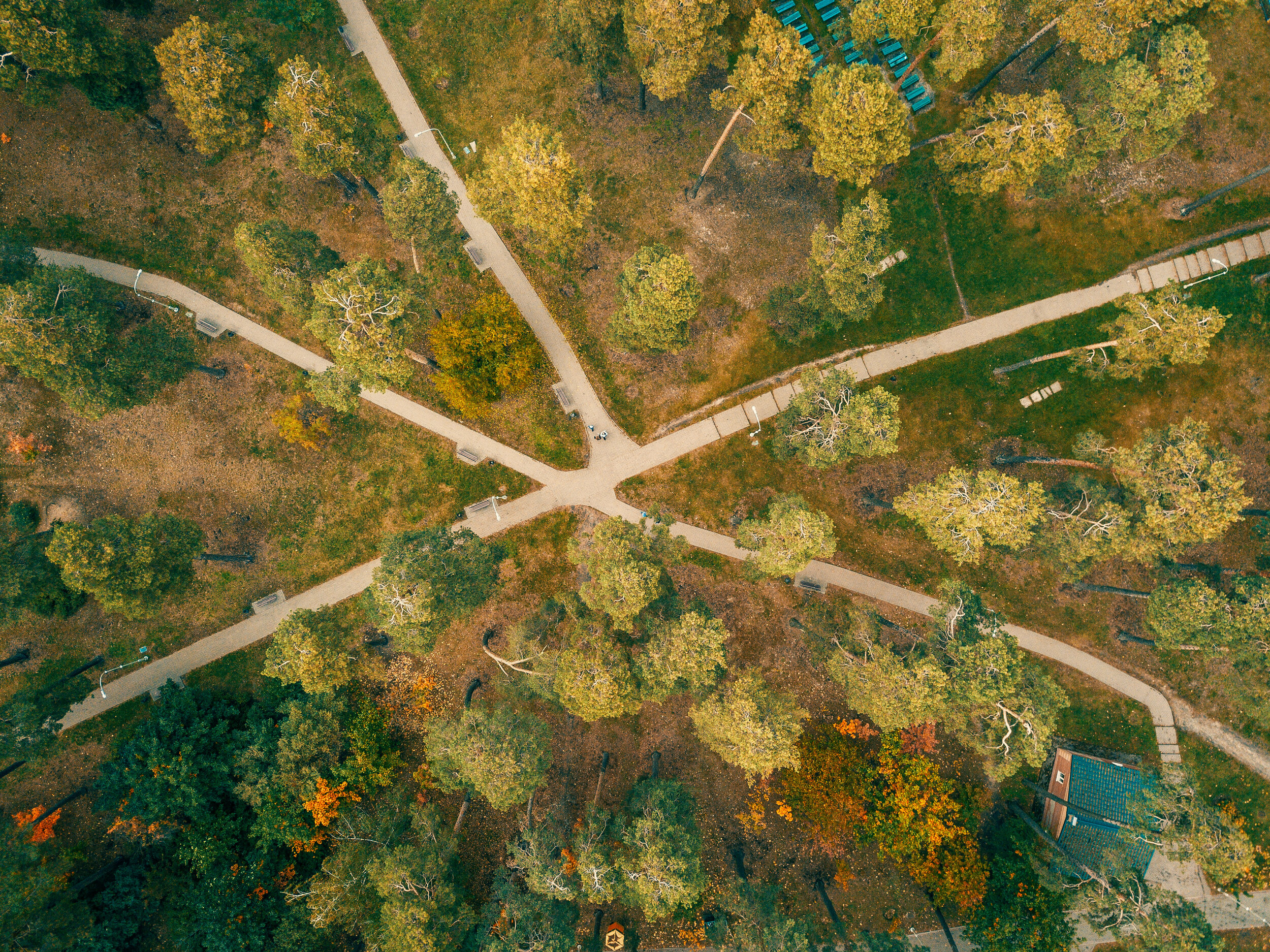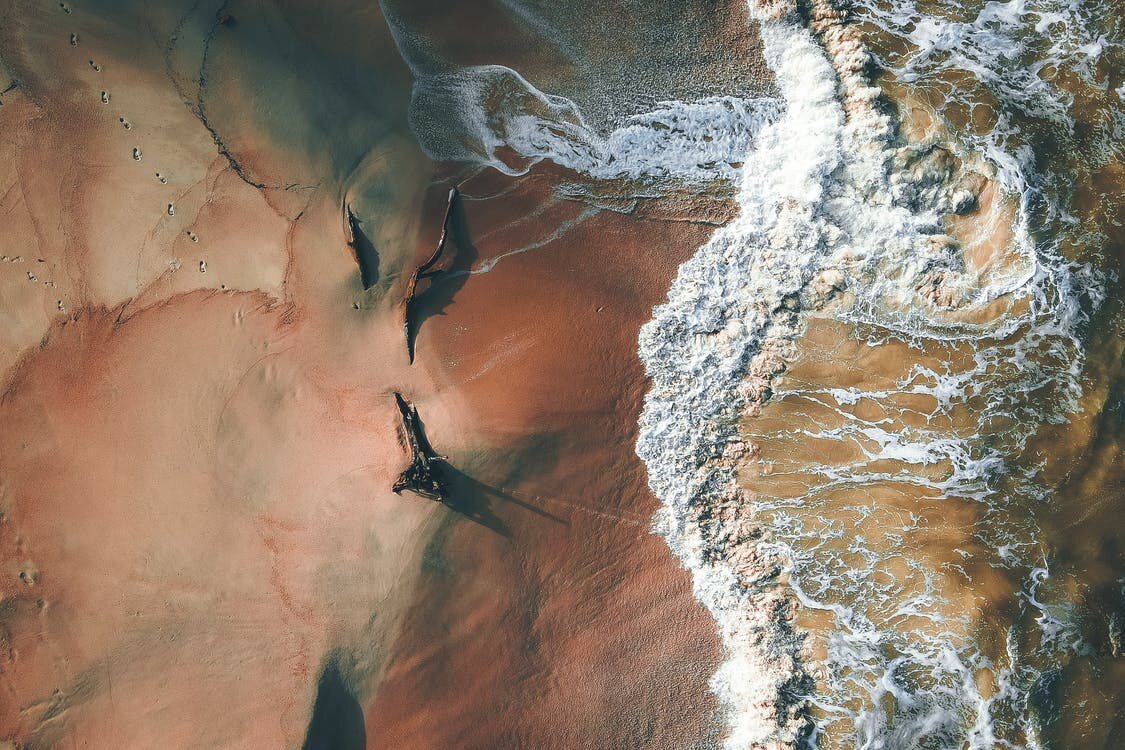
10 Digital design trends to watch in 2025
As we step into 2025, the digital design landscape continues to evolve, fuelled by advancements in technology, shifts in cultural expectations, and a growing desire for more meaningful and engaging experiences. Based on insights from Canva, Adobe, and other leading voices in the industry, here are the top design trends poised to shape the creative world this year.
“The advance of technology is based on making it fit in so that you don’t really even notice it, so it’s part of everyday life.”
Top 10 for 2025
Sustainability-driven design
Analog meets AI
Opulence era
Serious fun
Mechanical botanical
6. Fantastic frontiers
7. Inclusivity in design
8. Minimalism meets maximalism
9. Data visualisation
10. Storytelling
Sustainability-driven design
“Good design is obvious. Great design is transparent.”
Sustainability in web design goes beyond aesthetics, focusing on reducing energy consumption and carbon footprints. This includes optimising images, streamlining code, and using green hosting providers. For example, Wholegrain Digital has publicly shared how they optimise their website’s performance to minimise energy use and environmental impact, demonstrating how small changes can make a big difference. Designers are embracing eco-friendly colour palettes, low-energy design solutions, and visuals that reflect sustainable values. From carbon-conscious websites to sustainable branding, this trend aligns with global efforts to combat climate change.
Analog meets AI
“Artificial intelligence and generative AI may be the most important technology of any lifetime.”
The fusion of human craftsmanship with AI-powered innovation takes centre stage in 2025. This trend celebrates the charm of handmade textures, collages, and organic elements, enhanced by the precision and boundless possibilities of AI. Expect visuals that feel deeply human yet technologically advanced, merging timeless aesthetics with futuristic capabilities. A good example is Spotify's playlist covers, which often combine AI-generated visuals with personal, handcrafted touches.
Opulence era
“Design can help to improve our lives in the present. Design thinking can help us chart a path into the future.”
Luxury and refinement define the opulence era. This trend focuses on minimalist designs enriched with intricate details, lush textures, and generous negative space. With sophisticated colour palettes and thoughtfully crafted elements, opulence era designs exude understated glamour and elevate brand aesthetics to new heights. For instance, Apple's product marketing often embodies this trend with its sleek, minimal layouts and premium finishes. This trend is 100% reflected in Pantone's 2024 colour of the year choice too.
Serious fun
“Design is not just what it looks like and feels like. Design is how it works.”
Playfulness meets professionalism in serious fun. This trend redefines the boundaries of corporate design by introducing humour, casual elements, and creativity. From quirky illustrations to unexpected animations, serious fun ensures that even serious projects feel engaging and enjoyable. Designers often incorporate geometric shapes to create structured, inviting visuals that balance playfulness with professionalism, as seen in branding strategies like Airbnb's use of playful forms. Think of Slack's use of lighthearted illustrations and emojis that keep productivity tools approachable and fun.
Mechanical botanical
“AI will change the nature of creativity, so it’s important that we develop new ways to interact with these machines.”
Blending the organic with the engineered, mechanical botanical bridges nature and technology. This trend incorporates natural textures, earthy tones, and sleek digital elements to create designs that are futuristic yet grounded. It reflects a harmonious coexistence of humanity and innovation. Look to designs like Google's sustainable campus projects, which combine advanced technology with natural, biophilic elements.
The Katanya team are design and technology enthusiasts who have translated designs from some of the world’s best agencies — from Huge to SapientNitro and Interbrand to Wolff Olins — into digital visual identities and brought them into life online. If a design refresh or roll-out or migration to a new design is on the cards for 2025 we’d love to hear from you.
Fantastic frontiers
“Intelligence is the ability to adapt to change.”
Inspired by our collective desire for escapism, fantastic frontiers explores magical, uncharted worlds. Leveraging generative AI and digital world-building techniques, this trend brings dreamlike, surreal visuals to life, appealing to audiences eager for imaginative, otherworldly experiences. Video games like "Horizon Forbidden West" showcase this trend with their breathtaking, otherworldly landscapes.
Inclusivity in design
Diversity and representation take precedence in 2025. Inclusive design ensures accessibility and celebrates differences in culture, ability, gender, and ethnicity. Whether through adaptable UI, culturally sensitive visuals, or designs tailored for colourblind users, inclusivity is no longer optional—it’s essential. Microsoft's Xbox Adaptive Controller is an excellent example, designed to cater to gamers with disabilities.
“Maybe we are all just compensating for missing travel, but some websites seem to be gaining more sense of place. ”
Minimalism meets maximalism
“Minimalism has been a dominant design trend for many years, but in 2025, this trend, I think, will 10x itself and blend the simplicity of minimalism with the boldness of maximalism”
The simplicity of minimalism meets the bold expressiveness of maximalism in this juxtaposed trend. Designers are blending clean lines and white spaces with explosive colours, oversized typography, and eclectic elements to create striking yet balanced compositions that resonate with modern audiences. This trend often incorporates gritty textures and bold contrasts, adding an edgy sophistication to clean designs, much like Harley-Davidson's campaigns blend rugged imagery with polished finishes. Gucci’s advertising campaigns often embody this bold yet harmonious aesthetic.
Data visualisation
Communicating complex information through interactive, visually compelling data is becoming increasingly important. From dynamic dashboards to real-time infographics, this trend helps audiences absorb information efficiently while staying engaged. Think of Bloomberg’s interactive charts, which turn complex financial data into intuitive, readable visuals.
“Expect to see designs catering to every ability, culture, and shade of human life. It could be a glorious symphony of inclusivity, visually expressed with grace and humanity.”
Storytelling
“Design is so simple. That’s why it is so complicated.”
Designers are increasingly using visuals to tell compelling narratives. This trend goes beyond aesthetics, focusing on creating emotional connections through sequential imagery, video, or animation. Pixar’s "The Art of Story" initiative showcases how storytelling can be integrated into visual design to inspire and captivate audiences.
Looking ahead: A year of contrasts and convergence
In 2025, digital design trends embrace dualities: technology versus humanity, minimalism versus maximalism, and nostalgia versus innovation. These contrasts reflect the complexity of our world and the creativity of designers who find harmony in these tensions. Whether you are a brand strategist, content creator, or visual artist, these trends offer inspiration to craft designs that are as effective as they are beautiful.
Further reading
"Design trends 2025: The intersection of technology and art" - Adobe.
https://www.adobe.com/insights/design-trends-2025"Creative shifts: The future of design" - Canva.
https://www.canva.com/design/future-trends"Sustainability in digital design: Best practices for 2025" - Entrepreneur.
https://www.entrepreneur.com/sustainable-design"The art of inclusive design" - Harvard Business Review.
https://hbr.org/inclusive-design-art"Data visualisation in the modern era" - Bloomberg.
https://www.bloomberg.com/data-visualisation-modern"Sustainable web design: Practical tips" - Green Web Foundation.
https://www.thegreenwebfoundation.org/sustainable-web-design"2025 creative trends to watch" - Behance.
https://www.behance.net/blog/2025-creative-trends"Future of UX/UI design" - Smashing Magazine.
https://www.smashingmagazine.com/future-of-ux-design"Inclusive branding strategies for 2025" - HubSpot.
https://blog.hubspot.com/marketing/inclusive-branding"AI in design: Trends and tools" - Fast Company.
https://www.fastcompany.com/ai-in-design-trends






